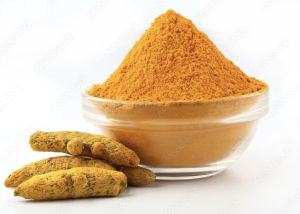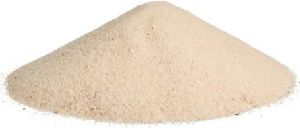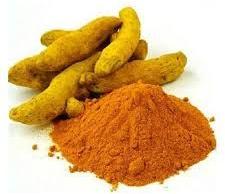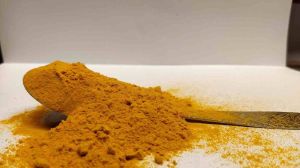
Organic Turmeric Powder
Get Price Quote
50 Kilogram (MOQ)

Herbal Multani Mitti Powder
4,500 - 7,000 Per Ton
30 Ton (MOQ)
Best Deals from Processed Minerals

Barite Powder
Get Price Quote

Multani Mitti Powder
30 Per 50 gm
1000 Kilogram (MOQ)

Silica Sand Powder
2,800 Per Metric Ton
25 Metric Ton (MOQ)

Multani Mitti Powder
35 - 55 Per Kilogram
5 Ton (MOQ)

Organic Turmeric Powder
145 - 250 Per Kilogram
5000 Kilogram (MOQ)

Organic Turmeric Powder
300 Per Kilogram

Organic Turmeric Powder
Get Price Quote

Talc Powder
Get Price Quote
Talcum powder is made from talc, a mineral made up mainly of the elements magnesium, silicon, and oxygen. As a powder, it absorbs moisture well and helps cut down on friction, making it useful for keeping skin dry and helping to prevent rashes.

Expanded Perlite
58 Per Kilogram

Multani Mitti Powder
Get Price Quote
Multani mitti powder ingredients :multani mitti total :100grm.

Organic Turmeric Powder
3 - 3 Per Kilogram
15 Ton (MOQ)

Ethacrynate
385,000 Per Kilogram
We are leading manufacturer and exporter of pharmaceutical Etacrynic acid (INN) or ethacrynic acid (USAN), trade name Edecrin, is a loop diuretic used to treat high blood pressure and the swelling caused by diseases like congestive heart failure, liver failure, and kidney failure.Unlike the other loop diuretics, etacrynic acid is not a sulfonamide and thus, its use is not contraindicated in those with sulfa allergies.

Kaolin Clay Powder
2,000 - 6,000 Per Metric Ton
25 Metric Ton (MOQ)

Organic Turmeric Powder
400 - 500 Per Kilogram
10 Kilogram (MOQ)

Silica Powder
40 Per Kilogram

Organic Turmeric Powder
Get Price Quote
1 Ton (MOQ)

Micro Silica
15 - 23 Per Kilogram
25 Tons (MOQ)
Microsilica can be used in concrete and refractory materials. Microsilica ,when used in concrete, it can improve concrete’s properties such as compressive strength, bond strength and abrasion resistance, reduces permeability,and therefore helps in protecting reinforcing steel from corrosion. Micro Silica Micro Silica is designed to give a big Qualitative boost to Concrete. It is well recognized that Concrete Mix for High Strength cannot be achieved without some extra cementitious material beyond Cement & Fly ash. Here Micro Silica plays a vital role in ü Increasing Compressive, Flexural and bond strengths in concrete. ü Improves the Life of Concrete by acting as Corrosion Inhibitor for Reinforcement. ü Improves the Life of Concrete by reducing Alkali-Silica Reaction (ASR) or Concrete Cancer. Micro Silica is a mineral admixture comprising of very fine solid glassy spheres of silicon dioxide (SiO2). Micro Silica is fine amorphous silica with particle size around 100 times smaller than average particle size of cement and fly ash. Higher Compressive, Flexural & Bond Strength with Micro Silica ü The silica present in Micro Silica, reacts with the weaker calcium hydroxide released during the hydration of cement and forms additional calcium silicate hydrate (C – S – H). The concrete derives greater strength from higher concentration of strong Calcium Silicate Hydrate replacing weak and easily soluble calcium hydroxide. ü Micro Silica is like a pozzolanic material which provides more uniform distribution and a greater volume of hydration in concrete structures. This changes the Rheology of concrete and reduces the water-binder ratio. This in turn results into higher compressive strength. Reinforcement Corrosion Inhibitor role of Micro Silica ü With particle size of 1/100th of cement & fly ash, Micro Silica drastically reduces the average size of pores in the concrete. This drastically reduces water permeability in concrete. ü Lower water-binder ratio achieved by adding Micro Silica ensure that the concrete does not loose water during setting and no pin holes are created. ü It reduces the rate of carbonation, decreases permeability to chloride ions and imparts high electrical resistivity. Hence it protects the reinforcement steel and embedment. ü As an additional functional benefit, this reduces the instances of damp and water leakage troubles. Resistant to Concrete Cancer (Alkali-Aggregate Reaction) ü Cement Hydration process produces Calcium Hydroxide along with Sodium and Potassium oxides which has the following impact on concrete at a later stage: § With age the porosity of concrete gathers sufficient moisture to aid a swelling reaction between highly alkaline cement paste and the reactive non-crystalline silica found in many aggregates. This form hydroscopic gel of Sodium Silicate which swells absorbing further moisture weakening the concrete and creating cracks. These cracks lead to increased porosity which in turn exponentially propagates the process of disintegration. That is the reason it is termed as Concrete Cancer. § In case of Sulfate attack, free calcium hydroxide reacts to produce calcium sulphate. This brings acidity in concrete and weakens the structure. ü Micro Silica acts with the policy of “fight Fire with Fire” to combat ASR reaction. It initiates a prompt reaction at early stage of concrete hardening. Thus, it binds these trouble makers, i.e. Calcium Hydroxide along with Sodium and Potassium oxides. Thus, they are arrested and quarantined not allowing them to create much trouble at later stage. Add to this the fact that Micro Silica has already reduced the porosity and hence curtailing the availability of moisture, the other key requirement for this process. RecommendationMicro Silica can be mixed between 5-10% of cement used in Concrete Mix for excellentperformance.

Precipitated Silica Powder
70 - 90 Per kgs
1000 Kilogram (MOQ)